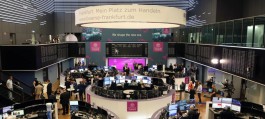Asian stocks traded in a tight range, with bid-ask spreads narrowing on Tuesday, as the dollar retreated ahead of a batch of inflation data expected to influence the direction of global monetary policy.
Stocks in South Korea and Taiwan rose. The US and UK markets were closed on Monday, while European stocks rose yesterday in thin trading.
In early Asian trading hours today, S&P 500 futures rose.
In commodities, gold prices were steady as traders awaited U.S. inflation data. Oil prices rose as focus shifted to an OPEC+ supply meeting on Sunday and U.S. demand at the start of the summer driving season.
Miscellaneous inflation data
Traders will be looking at fresh inflation data this week from Australia to Japan, the euro zone and the United States. Bank of Japan Governor Kazuo Ueda and his deputy have signaled that there is room for gradual interest rate hikes now that the country has moved away from zero percent inflation. Japan’s producer prices for April beat estimates.
The dollar fell against all its G10 peers, and the 10-year Treasury yield fell.
The Fed’s preferred measure of core inflation is expected to show a modest softening when data is released on Friday. Fed Chairman Jerome Powell has stressed the need for more evidence that inflation is on track to its 2% target before easing monetary policy. Among the U.S. central bankers scheduled to speak this week are John Williams, Lisa Cook, Neel Kashkari and Lori Logan.
Chinese property stocks rose after financial hub Shanghai cut down-payment and minimum mortgage rates, as major Chinese cities follow central government aid for the property sector.
With U.S. and U.K. markets closed on Monday, the spotlight was on European stocks, with automakers and utilities leading a modest advance for the Stoxx Europe 600. Trading volume was less than half its 20-day average for the time of day.
ECB moves
The European Central Bank should not rule out cutting borrowing costs at its June and July meetings, a member of the governing council of the European Central Bank, Francois Villeroy de Galhau, said, a view opposed by his colleagues who are not keen on successive cuts. The ECB’s chief economist Philip Lane told the Financial Times that the bank would have to keep monetary policy tight through 2024, even with the possibility of a rate cut next month.
While the ECB’s June rate cut was widely heralded, subsequent moves are less clear given uncertainty over wage growth and other factors such as the war in the Middle East. Data this week could show core eurozone inflation edged up in May.






































